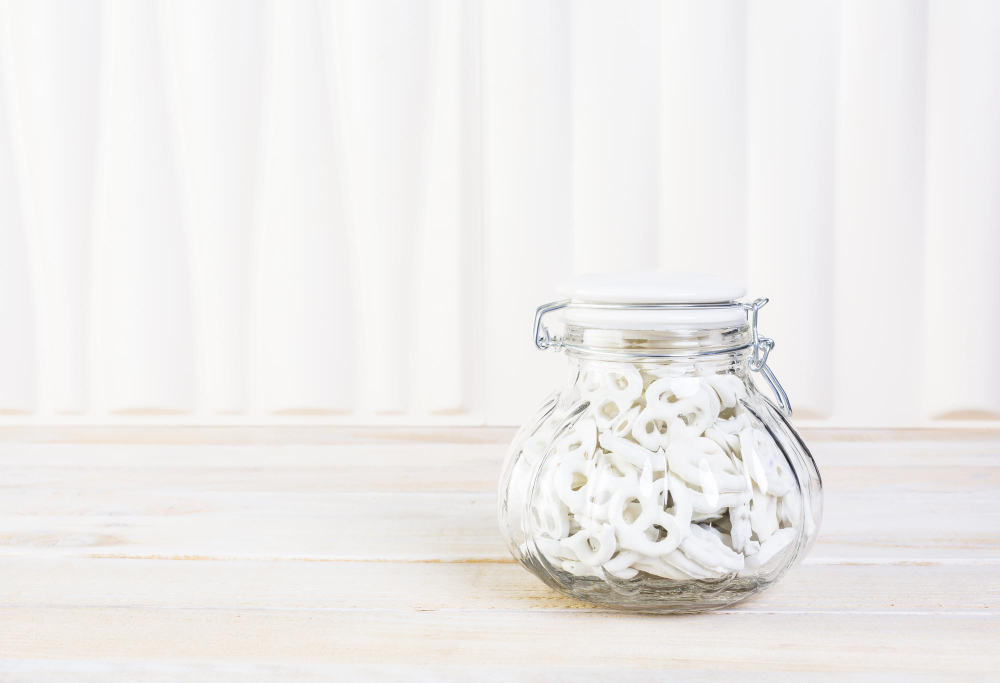Humans have ingested yogurt for hundreds of years. It is incredibly nutritious, and its frequent use may benefit numerous areas of your health. For instance, yogurt has been shown to lower the risk of bone disease and heart disease and help with essential weight loss efforts. In addition, this is a top dairy product prepared from milk that bacteria have fermented.
The bacteria utilized to manufacture yogurt are referred to as “yogurt cultures,” and they ferment lactose, a naturally occurring sugar in milk.
This process generates lactic acid, which causes milk proteins to curdle, imparting yogurt with its distinct flavor and texture.
All varieties of milk can be used to make yogurt. Skim milk varieties are fat-free, while whole milk varieties are called full-fat.
Plain yogurt is a clear, thick liquid with a sour flavor. Regrettably, most commercial brands contain additives such as sugar and artificial flavors. As a result, these yogurts are detrimental to one’s health. By contrast, plain, unsweetened yogurt has a plethora of health benefits.
Are Yogurt Covered Pretzels Covered in Yogurt?
While yogurt provides excellent nutritional benefits on its own, foods such as yogurt-covered pretzels, rarely include large amounts of nutrients or health benefits. As with other yogurt-covered foods, such as coated peanuts or raisins, yogurt-covered pretzels are more a treat than a portion of healthy food. Therefore, they should be enjoyed similarly to other snacks and consumed in moderation to avoid weight gain or ill health.
A single cup contains about 400 calories, much more than the average candy bar sold in the United States. A serving of 10 of these coated pretzels contains approximately 300 calories. Perhaps more important is the fat content, about 12 grams per ten pretzels. Additionally, yogurt-covered pretzels have a surprising amount of saturated fat. In comparison, a single cup of nonfat yogurt contains 120 calories and no fat or saturated fat.
Plain pretzels have little fat, while nonfat yogurt is similarly low in fat. The high-fat level of yogurt-covered pretzels is due to the additional substances employed in their preparation. Numerous pre-packaged varieties contain sugar and harmful oils to simulate the appearance and flavor of yogurt but have little to no yogurt. This means that snackers who substitute yogurt-covered pretzels for yogurt will deprive themselves of the protein, vitamins, and minerals in most fresh yogurts.
Is Yogurt Covered Pretzels Healthy?
Yogurt-covered pretzels are a popular, straightforward snack prepared of crispy pretzels coated in yogurt. These are only one of an almost infinite number of yogurt-based delicacies that are frequently seen as a healthier alternative to classic treats like sweets and chocolate. Manufacturers offer flavors ranging from vanilla to strawberry and peanut butter.
Unfortunately, yogurt covering is not the same as yogurt — a trace of yogurt powder is included, but most of the mixture comprises sugar, palm kernel oil, stabilizers, and extra salt.
If you enjoy the combination of raisins and yogurt, try incorporating some raisins into plain or Greek yogurt on your own – you can even freeze them for later use as cold, yogurt-covered treats.
Obesity rates are increasing globally, and added sugar, particularly from sugar-sweetened beverages, is believed to be a significant contributor. Carbonated beverages, juices, and sweet teas are high in fructose, a form of simple sugar. Fructose, the primary sugar present in starchy meals, boosts your desire for food more than glucose.
Excessive fructose may result in leptin resistance, a critical hormone that regulates hunger and signals the body to cease eating.
In other words, sugary beverages do not satisfy hunger, making it easier to consume many liquid calories in a short period. This could result in weight gain.
People who consume sugary beverages, such as soda and juice, routinely weigh more than those who do not.
Additionally, excessive sugar-sweetened beverages are connected with a rise in visceral fat, a type of deep abdominal fat associated with illnesses such as diabetes.
Is Yogurt Covered Fruit Healthy?
Yogurt-coated fruit sounds like a healthy snack with a double dose. However, do not be fooled—according to specialists, a “yogurt” shell contains some very un-yogurtlike substances.
While these coatings are called ‘yogurt,’ they are a type of ‘frosting’ containing yogurt. The true stars of yogurt coatings are sugar—and not the natural variation found in dairy products—and oil. Adding the word ‘yogurt’ to the mix is meant to make everything acceptable.
Indeed, the ingredients in yogurt coating—typically sugar, partly hydrogenated palm kernel oil, yogurt powder, emulsifiers, and salt—are quite different from those in yogurt. It would help if you never considered this to be healthy food.
Additionally, specialists consider that most of these snacks belong in the same category as candy bars. At first look, the nutritional information appears to be quite favorable; a 1/4 cup portion of vanilla yogurt raisins contains 19 grams of sugar and 5 grams of fat, while a 1/4 cup meal of ordinary raisins contains 29 grams of sugar but no fat. However, this is not a nutritional wash. Since yogurt-covered raisins are significantly chunkier than their natural, unadulterated counterparts, you get considerably fewer raisins per serving, significantly more of the synthetic type of sugar.
Is Yogurt Covered Cereal Healthy?
No, they’re not. Any snack or breakfast item promoted as “yogurt-covered” is just sugar-covered.
There is additional danger associated with these “fake” snack foods. For children, yogurt-covered snacks such as yogurt-covered raisins and pretzels teach them that these foods should look and taste like sweets. The challenging aspect is convincing a child that a yogurt-covered snack should be had just occasionally.
While yogurt is a “nutritious food product,” the sort that has been dried, stabilized, and covered in dried nibbles is not. By and large, most of the benefits of fresh yogurt are lost when coated treats are made. So instead, dip fruit or nuts in plain or vanilla yogurt and freeze for a sweet treat with substantially less added sugar and more excellent nutritional value.

